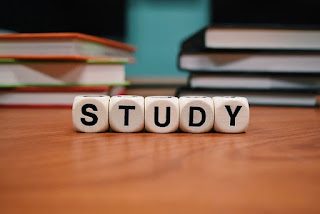In our rapidly changing world. Education has become a powerful force for transformation. It provides individuals with the knowledge, skills, and opportunities they need to succeed in a competitive environment. Education holds the key to personal growth, societal progress, and economic development.
1. Empowering Individuals for Success:
Education not only imparts academic knowledge but also fosters critical thinking, problem-solving, and creativity. By nurturing these skills education empowers individuals to overcome challenges adapt to change and seize opportunities.
Moreover, it instills confidence, self-esteem, and a sense of purpose in individuals as they pursue their passions and achieve their goals.
2. Building Stronger Communities:
Education plays a vital role in building stronger communities by creating active and engaged citizens who contribute to society's betterment. It promotes tolerance, empathy, and social responsibility fostering a sense of unity and inclusivity. Education also enables individuals to understand and appreciate diverse perspectives for more harmonious coexistence. Furthermore, Education empowers communities to address social issues. Drive positive change. And create a more equitable society.
3. Fueling Economic Development:
Education is a driving force behind economic growth and development. A well-educated workforce is essential for innovation, productivity, and competitiveness in a globalized economy. Education equips individuals with the skills demanded by the job market, reducing unemployment rates and increasing employability. Moreover, educated individuals tend to earn higher incomes, contributing to higher living standards and economic prosperity. By investing in education, societies can unleash the potential of their human capital, leading to sustainable economic development.
4. Bridging the Gap: Education for All:
Access to quality education is a fundamental right that should be available to all individuals, regardless of their socioeconomic background, gender, or geographic location. Unfortunately, many barriers prevent millions of children and adults from accessing education. These barriers include poverty, discrimination, lack of infrastructure, and cultural norms. To build a bright and prosperous future, it is crucial to address these inequalities and ensure equal opportunities for everyone. Governments, NGOs, and individuals must collaborate to eliminate barriers and promote inclusive education systems that leave no one behind.
5. Embracing Lifelong Learning:
Education is not confined to classrooms or a specific phase of life; it is a lifelong journey. In today's rapidly changing world, the acquisition of new knowledge and skills is essential to remain relevant and adaptable. Embracing lifelong learning allows individuals to stay ahead of technological advancements, industry trends, and societal changes. It encourages personal growth, self-improvement, and continuous innovation. By cultivating a culture of lifelong learning, societies can embrace progress and navigate the challenges of the future.
Conclusion:
Education holds the key to a bright and prosperous future. It empowers individuals, builds stronger communities, fuels economic development, bridges inequalities, and fosters a culture of lifelong learning. Investing in education is not just a matter of personal development; it is a collective responsibility that will shape the trajectory of our societies. Let us recognize the transformative power of education and strive to provide quality education for all. Together, we can unlock a world of endless possibilities and create a future that is brighter, more inclusive, and filled with opportunities for everyone.


1 Comments
Super and valuable
ReplyDelete